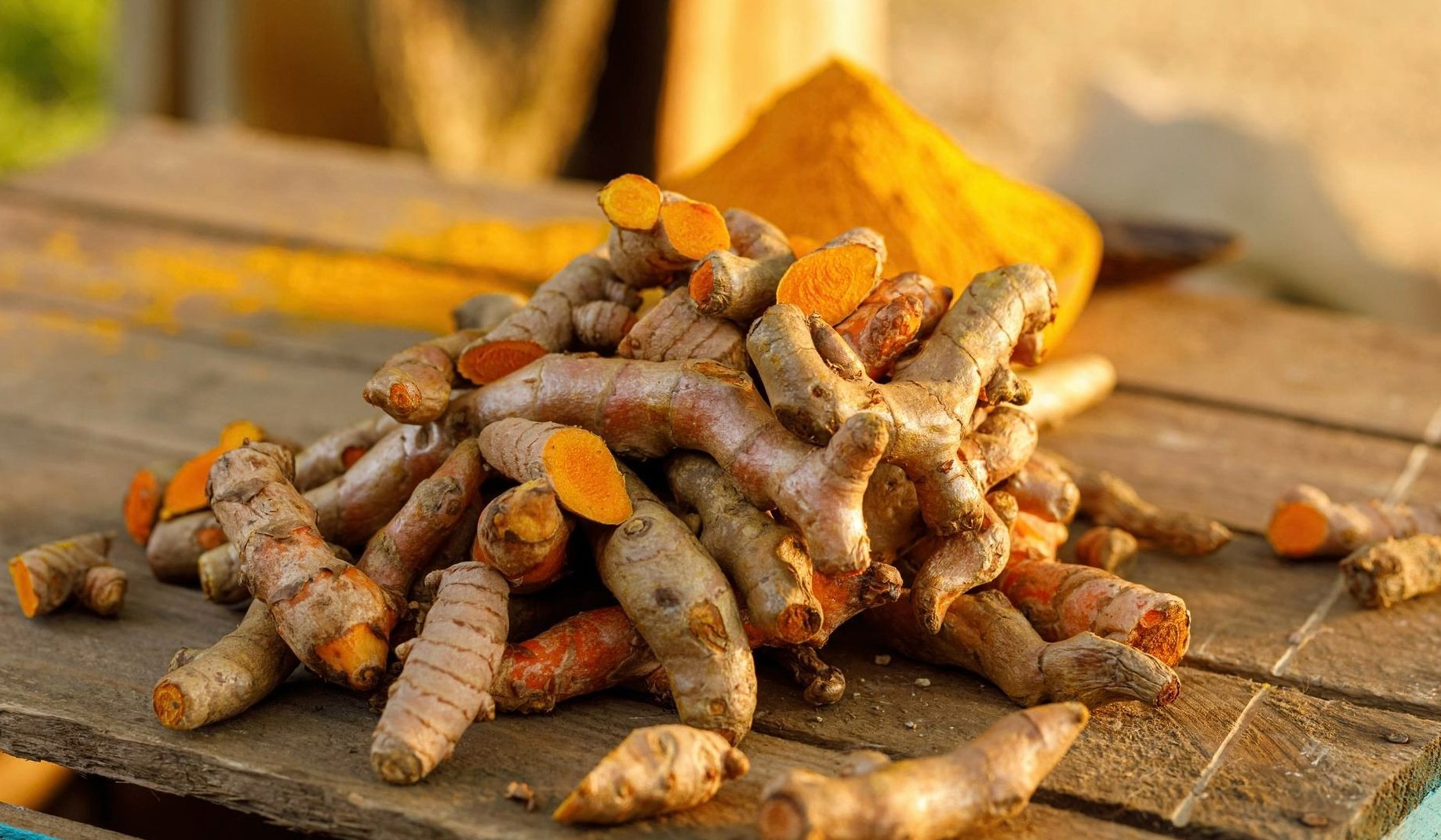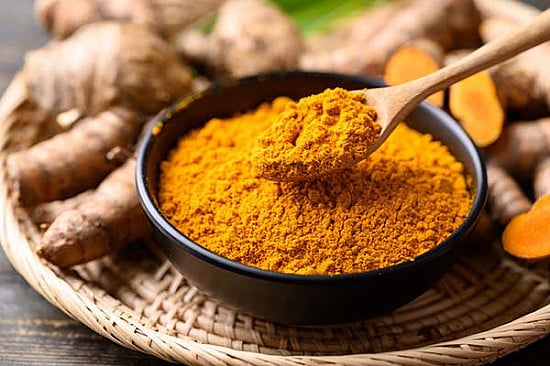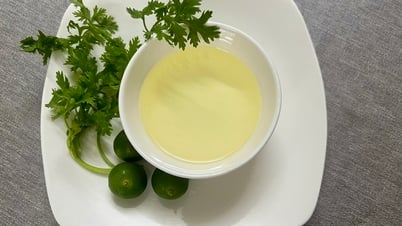Turmeric is not only a good spice but also has the effect of supporting the treatment of some diseases. Below are 4 health benefits of using turmeric in winter.
In traditional medicine, turmeric is a spice with many medicinal properties. According to the Ho Chi Minh City Institute of Traditional Medicine, turmeric not only helps restore health for women after giving birth, supports the treatment of stomach pain such as gastritis, duodenal ulcers, but it also has effects on some chronic diseases...
Turmeric not only has many health benefits, adding color to food but also enhancing the flavor of dishes. With many anti-inflammatory and anti-bacterial properties, turmeric can be a great addition to the winter diet.
1. Turmeric and curcumin

Turmeric has many health benefits.
Turmeric has been used for thousands of years as a spice that adds an attractive yellow color to many dishes and has medicinal value. Research has shown that turmeric contains compounds with healing properties. These compounds are called curcuminoids. Curcumin, the main active ingredient in turmeric, has medicinal benefits. Turmeric can be used to help relieve pain and reduce inflammation. However, curcumin in turmeric is difficult to absorb. Therefore, the amount of turmeric that people usually consume in food is unlikely to provide many noticeable benefits.
2. Nutritional value of turmeric
Ground or fresh turmeric is an ingredient in many dishes. According to the United States Department of Agriculture (USDA) National Nutrient Database, 1 tablespoon (tbsp) of ground turmeric powder contains:
- Calories: 29.3 kcal
- Protein: 0.91 g
- Fat: 0.31 g
- Carbohydrates: 6.31 g
- Fiber: 2.1 g
- Sugar: 0.3 g
Turmeric also provides a number of other nutrients such as: calcium, iron, magnesium, phosphorus, potassium...
This is a relatively small amount of micronutrient compared to what adults need each day, with the exception of iron. Adult men and postmenopausal women need 8 mg of iron per day, so this serving of turmeric provides more than half of the recommended daily intake.
3. Some Top Health Benefits of Turmeric for Winter

Turmeric is good for health in winter.
May help control joint pain
Arthritis is a common joint disorder, and the knee is often the first joint affected by the condition. Research shows that in people over 60, more than 10% of men and 13% of women have symptoms of arthritis in the knee.
Experts say there is growing evidence that the active ingredient in turmeric can be beneficial to health. Curcumin, the active ingredient in turmeric, has anti-inflammatory and antioxidant properties, says Dr. Nagendra Gupta, an internist at Texas Health Arlington Memorial Hospital. And for this reason, it is often used as a supplement by many people to help relieve joint symptoms.
Supports immune function, reduces cold or flu symptoms
Studies show that curcumin has antiviral properties and helps reduce the severity of influenza A virus. Turmeric can reduce inflammation levels, helping to improve immune function.
Turmeric is a natural anti-inflammatory that can help reduce inflammation in the respiratory system. It is also a natural antiseptic that helps fight infections that cause colds and coughs.
Helps fight inflammation
Curcumin is a natural anti-inflammatory compound, a bioactive substance that can help fight inflammation, although it needs to be present in sufficient doses to produce therapeutic results. However, that means it contributes to fighting inflammation, which plays a role in many health conditions and diseases.
Helps relieve sinus symptoms
Turmeric contains a group of curcuminoid compounds, which have been scientifically proven to have anti-inflammatory, antibacterial, and antiviral properties, in which curcumin has the ability to help reduce swelling in the sinuses, relieve pain and pressure on the sinuses, protect cells in the nasal mucosa; Prevent allergic reactions that damage the sinuses, reduce nasal itching and stuffy nose; Help heal sinus lesions quickly.
4. Ways to use turmeric for winter health

Turmeric milk helps soothe sore throats, relieve nasal congestion and reduce coughs.
Food spices
Turmeric is a very popular spice, considered one of the familiar spices in cooking. Turmeric can be added to dishes such as fish soup, braised fish, grilled fish, eel, braised snails, stir-fried; fried chicken, fried pork, stewed beef... which is both good for health and enhances the flavor of the dish.
Turmeric milk
Turmeric milk is a powerful source of antioxidants. You can drink a glass of turmeric milk before going to bed. It will keep your body warm and can help soothe a sore throat, reduce congestion and reduce cough.
Mix one teaspoon of turmeric powder with one cup of warm milk to make turmeric milk. Add honey to taste.
Turmeric tea
Regular tea can be replaced with turmeric tea to drink in the morning to boost immunity and help prevent various health problems related to cold weather.
To make turmeric tea, first boil 3-4 cups of water. Add some turmeric powder or a few slices of fresh turmeric. Boil this water for a while. Then add some honey or lemon to make it easier to drink and enhance the flavor.
Turmeric Smoothie
Blend 1-2 slices of fresh turmeric with 1 slice of ginger, 1 banana, 1 teaspoon of cinnamon powder and 1 teaspoon of honey. Blend until the ingredients form a smooth mixture. This smoothie helps regulate health.
According to Dr. Tran Duc Canh, K Hospital, there are some groups of people who should not use turmeric starch such as pregnant women, people with anemia, diabetes, people with kidney stones, people preparing for surgery...
It is best to consult your doctor about dosage and usage when using turmeric starch to avoid health risks.
Source: https://giadinh.suckhoedoisong.vn/4-ly-do-nen-them-nghe-vao-che-do-an-trong-mua-dong-172241204161702709.htm


![[Photo] More than 1.1 million candidates nationwide enter the 2025 High School Graduation Exam](https://vphoto.vietnam.vn/thumb/1200x675/vietnam/resource/IMAGE/2025/6/26/9156d47f0f6e4268aa4a7dcdb05477f7)


![[Photo] Candidates take the first graduation exam with the new Literature topic](https://vphoto.vietnam.vn/thumb/1200x675/vietnam/resource/IMAGE/2025/6/26/dfded9e317554c25a3e26defe672ebb7)





















![[Photo] More than 124,000 candidates in Hanoi complete procedures for the 2025 High School Graduation Exam](https://vphoto.vietnam.vn/thumb/1200x675/vietnam/resource/IMAGE/2025/6/25/fa62985b10464d6a943b58699098ae3f)
![[Photo] First training session in preparation for the parade to celebrate the 80th anniversary of National Day, September 2nd](https://vphoto.vietnam.vn/thumb/1200x675/vietnam/resource/IMAGE/2025/6/25/ebf0364280904c019e24ade59fb08b18)









































































Comment (0)